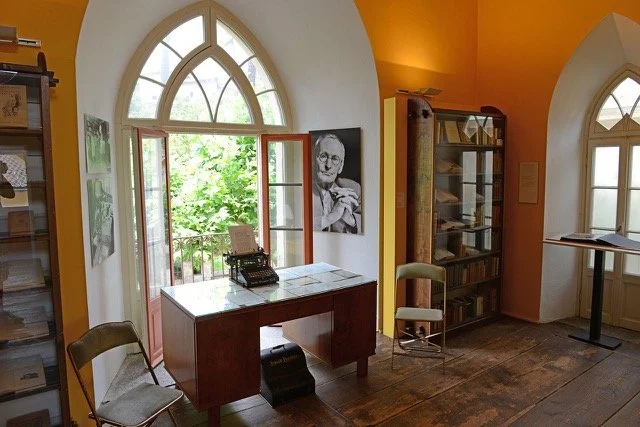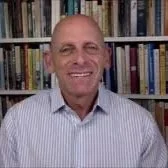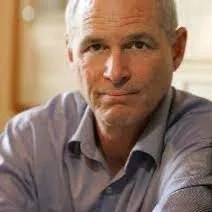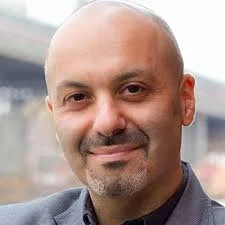Hermann Hesse’s writing room
Writers on Writing: The Craft, the Challenges, and Sage Advice
A writing workshop featuring 7 renowned authors in conversation with Nina Wise
October 3 – November 28
9 Tuesdays, 4:30 – 6pm PT
$450
Each week, a celebrated author will engage in conversation with Nina about a particular craft issue. Following the conversation, you will be given a prompt to launch you into a 20-minute writing practice. Afterwards you will be invited to read your work aloud in breakout rooms of 2-3 fellow students.
It is this combination of learning, practicing, and sharing one’s work aloud that has proved to be so powerful in the workshops I’ve been teaching over the past 2 years.
October 3: Nina Wise — Writing as a Transformative Practice
October 10: Susan Griffin — The Personal Is Political
October 17: Mark Matousek — Inviting the Soul to Speak
October 24: Elizabeth Rosner — Finding the Story You Want to Tell
October 31: Michael Massing — The Chronology Fallacy
November 7: Bob Morris — The First Person Essay
November 14: Natalie Goldberg — Writing as Practice
November 21: Boris Fishman — How to Write a Scene
November 28: Nina Wise — Wrapping Up and Next Steps
ABOUT THE SPEAKERS
Susan Griffin — The Personal is Political, October 10
When we write about our lives, we often lose sight of the bigger world we live in. And yet our lives are deeply impacted by our socio-political environment. In this session, we will explore how we cast light on this interconnection for ourselves and for our readers.
A renowned author, Susan Griffin has been making unconventional connections between seemingly disparate subjects. Whether pairing ecology and gender in her foundational work Woman and Nature, or the private life with the targeting of civilians in A Chorus of Stones, she sheds a new light on many contemporary issues, including climate change, war, colonialism, the body, democracy, and terrorism. An Emmy award winning playwright and a poet, celebrated for her innovative style, her books are also works of literature. Woman and Nature, is an extended prose-poem. A Chorus of Stones: the Private Life of War, blends history and memoir as does What her Body Thought, Wrestling with the Angel of Democracy: the Autobiography of an American Citizen, all of which belong to a series she calls “a social autobiography.”
Among her many awards and honors, she has been awarded a Guggenheim Fellowship, a Northern California Book Award for non-fiction, an honorary doctorate from the Graduate Theological Union, a grant from the National Endowment for the Arts, and the Commonwealth Silver Award for Poetry. A Chorus of Stones was a finalist for both the Pulitzer Prize and the National Book Critics Circle Award, and won the Northern California Book Award.
Mark Matousek — Inviting the Soul to Speak, October 17
When you understand your experience as an archetypal journal, you see the mythic dimension of your human story. In this conversation, Nina and Mark will talk about how we achieve this mythic quality in writing, which speaks in the language of soul.
Mark Matousek is a bestselling author, teacher, and speaker whose work focuses on personal awakening and creative excellence through transformational writing and self-inquiry. He brings over three decades of experience as a memoirist, editor, interviewer, survivor, activist, and spiritual seeker to his penetrating and thought provoking work with students. His workshops, classes, and mentoring have inspired thousands of people around the world to reach their artistic and spiritual goals.
Mark was co-editor on Still Here, by Ram Dass, and published his second memoir in 2000, The Boy He Left Behind: A Man’s Search for His Lost Father (Los Angeles Times Discovery Book). 2008 brought When You’re Falling, Dive: Lessons in the Art of Living (Bloomsbury) and two years later, Ethical Wisdom: The Search for a Moral Life, (Doubleday), described by Daniel Goleman as a “a riveting, fun, and insightful tour of life’s meaning and purpose, essential reading for anyone drawn to the query, “How ought we to live?” Writing To Awaken: A Journey of Truth, Transformation, and Self-Discovery was published in 2017) followed by Mother of the Unseen World, and Lessons From an American Stoic: How Emerson Can Change Your Life.
Elizabeth Rosner — Finding the Story, October 24
As writers we may have a vague notion about a story we want to tell but be at a loss as to how best to tell that story. In this session, we will explore how to tease out the story we want to tell from the fluff that surrounds it, how to find a story that truly has heart.
Elizabeth Rosner is an American novelist, nonfiction author, essayist, and poet. She is the author of three novels and a poetry collection. The Speed of Light was translated into nine languages and won several awards in the US and in Europe, including being shortlisted for the Prix Femina. Blue Nude was named among the best books of 2006 by the San Francisco Chronicle. Electric City was named among the best books of 2014 by NPR.
The daughter of Holocaust survivors, in 2017 Rosner published her first book of nonfiction: Survivor Café: The Legacy of Trauma and the Labyrinth of Memory, an examination of inter-generational dynamics in the wake of surviving tragedy. The San Francisco Chronicle notes that “Survivor Café — which combines moving personal narrative with illuminating research into the impact of mass trauma on a personal and cultural scale — feels like the book Rosner was born to write. Each page is imbued with urgency, with sincerity, with heartache, with heart." The book was a finalist for the National Jewish Book Award.
Michael Massing — The Chronology Fallacy, October 31
Many writers, whether working on biography, history, memoir, or general nonfiction, equate narrative with chronology. A too-strict adherence to chronology, however, can result in a dutiful recounting of facts and incidents that bog down the account. This workshop will discuss ways to vary the pace, take unexpected detours, and introduce surprises that can freshen the narrative and keep the reader turning the pages.
Michael Massing is an American writer based in New York City. He is a former executive editor of the Columbia Journalism Review. He received a bachelor's degree from Harvard College and a master's degree from the London School of Economics. He often writes for the New York Review of Books on the media, politics, and foreign affairs. He has also written for The American Prospect, The New York Times, The Nation, The New Yorker, The Guardian, Politico, and The Atlantic. His book The Fix offers a critique of the U.S. war on drugs. Now They Tell Us: The American Press and Iraq is a collection of articles which first appeared in The New York Review of Books and analyzes the press coverage of the Iraq war. A later book, Fatal Discord: Erasmus, Luther, and the Fight for the Western Mind, concerns the rivalry between those two men and the movements they represented — Christian humanism and evangelical Christianity; The New York Times named it a Notable Book of 2018. Massing is co-founder of the Committee to Protect Journalists (CPJ) and currently sits on its board. He is also a board member of the Alicia Patterson Foundation. In 1992, he was named a MacArthur Fellow, and in 2011 he was a fellow at the Leon Levy Biography Center at the City University of New York Graduate Center.
Bob Morris — The First Person Essay , November 7
How do you know you have the right idea that will blossom into a full essay? How do you structure a rant or regret into something universal?
Bob Morris is a frequent New York Times contributor who wrote the Age of Dissonance column for ten years. He is the author of the memoirs Assisted Loving and Bobby Wonderful, and the collaborator with actress Diahann Carroll on her autobiography The Legs Are The Last To Go. A commentator on NPR’s All Things Considered, he has contributed to the New Yorker, The New York Times Magazine, Vogue, New York, Elle and Town and Country, among others. His plays have been staged at Capital Repertory Theater, MCC Theater, Jewish Rep, Theater for the New City, Dixon Place, and at Daryl Roth Theater.
Natalie Goldberg — Writing as Practice, November 14
We can grow awake to what’s inside us and around us as writing material, learn how to go below discursive thinking to express how we really see, think and feel, and in so doing, deepen our pleasure in writing.
Natalie Goldberg is the author of fifteen books, including Writing Down the Bones (Shambhala, 1986), which has sold over one million copies, has been translated into fourteen languages, and started a revolution in the way we practice writing in this country.
She recently co-edited a collection of talks by revered zen teacher Katherine Thanas, The Truth of This Life (Shambhala, 2018). In her latest memoir Let the Whole Thundering World Come Home (Shambhala, 2018), she shares her experience with cancer grounded in her practice of zen and writing. Her other books include The Great Spring: Writing, Zen, and This Zigzag Life (Shambhala, 2016), the novel Banana Rose (Bantam, 1995), and the beloved Long Quiet Highway: Waking Up in America, a memoir about her zen teacher Katagiri Roshi.
Boris Fishman — How to Write a Scene, November 21
Boris Fishman will discuss the elusive bedrock of narrative fiction or nonfiction: The scene. Dialogue. Plot. Setting. Character. They all have to come together seamlessly and efficiently in a scene to make a dramatic impact and move the story forward. How to do it? Boris will demystify the steps.
Boris Fishman’s debut novel A Replacement Life won the VCU Cabell First Novelist Award and the American Library Association Sophie Brody Medal, and was a New York Times Notable Book of the Year, as was his second novel, Don’t Let My Baby Do Rodeo. HarperCollins will publish his new novel, The Unwanted, in early 2025. His journalism, essays, and criticism have appeared in The New Yorker, The New York Times Magazine and Book Review, The Washington Post, The London Review of Books, The Wall Street Journal, The Guardian, Travel & Leisure (where he is a contributing editor), Saveur, New York Magazine, The Times Literary Supplement, and other publications.
Boris has taught in Princeton University’s Creative Writing Program and in the MFA program at The University of Montana.
* * * * *
October 3 – November 28
9 Tuesdays, 4:30 – 6pm PT
$450 (+ $10 service fee)
About Nina
Nina Wise is an award-winning writer, theater artist and dharma teacher. Her book, A Big New Free Happy Unusual Life: Self-Expression and Spiritual Practice for Those Who Have Time for Neither was published by Broadway Books/Random House and translated into German and Portuguese. Her stories and essays have been featured in numerous journals including The Sun, Yoga Journal, Tricycle, Shambhala Sun, and collected in anthologies. She has been awarded multiple fellowships and awards from the National Endowment for the Arts, California Arts Council, Marin Arts Council, Theater Bay Area, Society for Experiments in Contemporary Art to name just a few. More here.
Refund Policy
We understand the unexpected can arise. And we want to do our best to support your utmost well being however, because we are limiting the number of participants in this workshop, we will not be able to offer refunds. In case of severe illness that prohibits you from completing the workshop, we will discuss on an individual basis applying a pro-rated amount of your fee to a future workshop.








